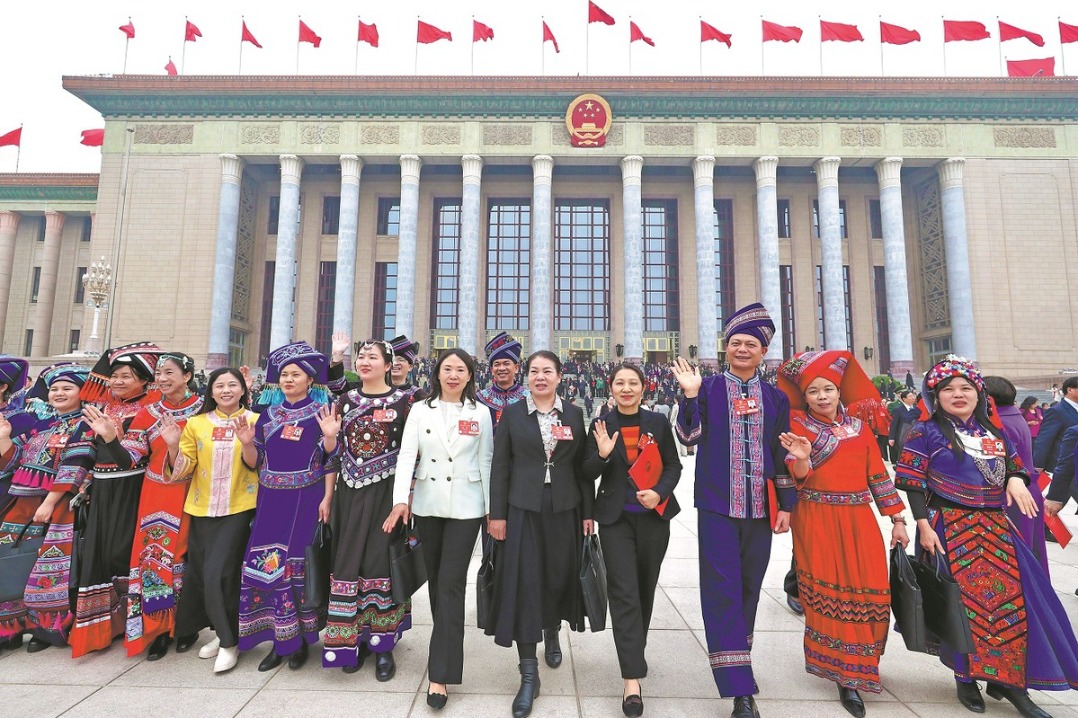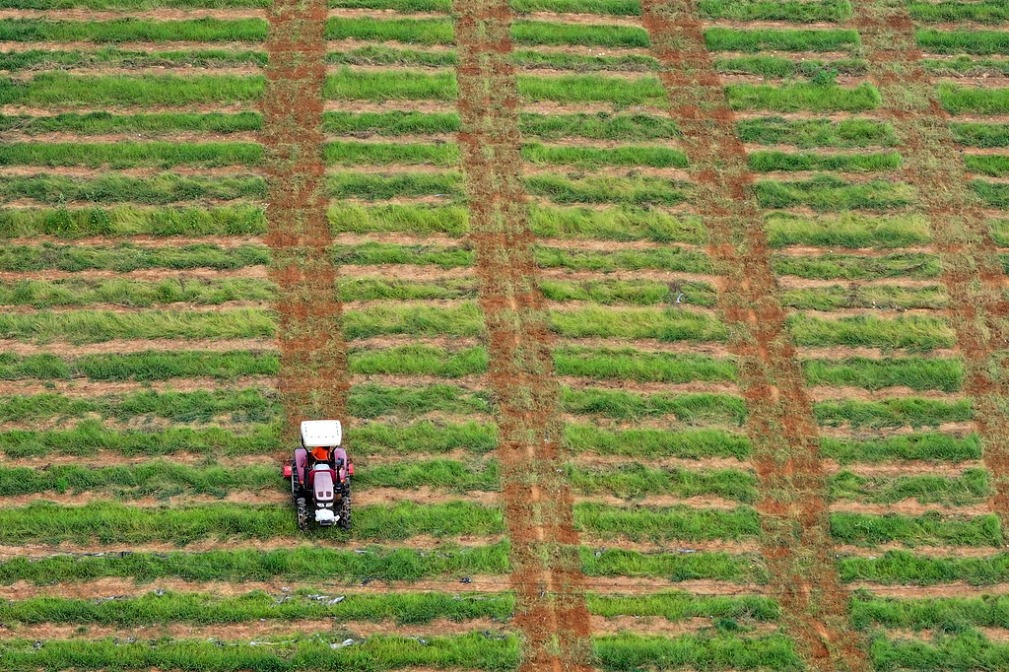FOREIGNERS SHUN BRIGHT LIGHTS, BIG CITIES FOR RURAL CHARMS
More expats seeking authenticity, peacefulness in lower-tier metropolises, country areas

Foreigners settling in China are increasingly turning their backs on bustling metropolises for the simplicity, authenticity and affordability of lower-tier cities and rural areas, statistics show.
As of 2020, there were approximately 846,000 foreign nationals living on the Chinese mainland, a 42.42 percent increase from 2010, according to the Seventh National Population Census published by the National Bureau of Statistics in 2021.
Yunnan province alone accounted for 376,000 long-term foreign residents. One of them is Patrik Bachstatter, a 33-year-old Swedish expatriate who has found not just a home but a new calling in the ancient town of Dali, far from the expat enclaves of Beijing and Shanghai.
Bachstatter met his wife in the Philippines, and the couple moved to China in 2018, living first in Shenyang, Liaoning province, and later in Sanya, Hainan province, and then Qingdao, Shandong province. But it was Dali with its clear air, mountains and strong sense of community that offered a more lasting connection.
"I read that Dali is known as the 'California of China'. It's not a big city, but it has good infrastructure and a lifestyle that's closer to nature. That really appealed to me, especially for my child's education," said Bachstatter.
Swede spreads roots
His path to organic farming was sparked by personal health concerns. After gallbladder surgery and digestive issues, he began paying closer attention to what he ate, and how food was grown. "I wanted to feel better, so I focused on clean, healthy food. That led to a broader lifestyle change," he said.
Drawn to Dali's ecological farming community, he began cultivating organic vegetables in villages across Midu and Eryuan counties, using sustainable techniques rooted in soil health and biodiversity.
Bachstatter starts every day early. By sunrise, he's usually walking by Erhai Lake, breathing the fresh air and resetting his internal clock. His mornings include yoga, stretching and reading before he heads out to his farm.
While many people might imagine an idyllic and unhurried rural lifestyle, Bachstatter's life is far from simple. It involves constant learning, trial-and-error farming, and an ongoing quest for deeper spiritual and physical well-being.
One of the most meaningful parts of his life in Dali is the bond he's formed with the land, and with those who work it.
"Local farmers here are incredibly knowledgeable. Even if they haven't studied organic methods, their connection to the land runs deep. There's so much to learn from their traditions," he said.
Bachstatter educates his young daughter about farming, teaching her about the importance of healthy food and the environment.
"I take my daughter to the land once a week, where she helps out and spends time with the plants. It's important for her to learn about nature and creativity. In today's world, with all the advances in technology, it's vital to develop independent thinking and creativity in children," he said.
He plans to expand his farming operation, focusing on experimenting with more sustainable farming practices, including hydroponics and agroecology.
Bachstatter's vision extends beyond his own farm and he wants to create a network of organic farms in the region, sharing best practices and promoting sustainable living.
"I see the potential for more people to join this movement. Together, we can change the way food is produced in China and build a more sustainable future," he said.
At one with the lot
In the quiet village of Nanxinan in Huangshan, Anhui province, the smoky aroma of wood-fired pizza mingles with the fragrance of tea fields and the earthy scent of preserved mandarin fish.
Adrien Brill, a 35-year-old American has traded the bustle of teaching in Chengdu, Sichuan province, for the serenity of rural China — and found purpose, community, and creativity in making pizzas.
In 2017, Brill moved to Huangshan, his wife's hometown.
"My wife could be closer to her family, which was important to both of us, and I would finally have the chance to build the kind of life I had long been yearning for — one that's more in tune with nature, community, and personal well-being," he said.
After various business ventures including an English-language training center, he gained some exposure during the pandemic in 2021 when he launched a TikTok channel called Wen's Kitchen where he cooked daily meals and explored village cuisine. The newfound fame led to a collaboration with local officials promoting rural revitalization, and in 2023, the opportunity came to open a pizza shop in Nanxinan.
"I didn't choose the restaurant business. The restaurant business chose me. It started with a video we shot at the launch of our pizza shop. It went viral overnight. The next day, we had hundreds of people lining up at our door. We had three tiny tables, no point-of-sale system, handwritten menus … It was total chaos — but also magic," he said.
Among his signature pizzas are one topped with preserved mandarin fish and another with fermented tofu, both traditional Anhui delicacies.
"It's not just food. It's a cultural exchange. It's the story of my family: one part American, one part Chinese, and something new and beautiful in between," he said.
Brill has become a fixture in the community, and mentored local youth and trained staff, all while balancing his dual roles as a chef and teacher.
Total immersion
In the summer of 2005, Canadian Brandon Collins-Green spent six weeks visiting his then girlfriend in Shanghai. After the visit, he was due to embark on an exchange program in Singapore as part of undergraduate commerce studies at the University of Toronto.
While in Shanghai he decided to immerse himself in Chinese language and culture, by lodging with a local family who spoke no English. "Those first few weeks were tough. No one spoke English at all, and I had to learn quickly just to get by," he said, adding that's when he fell in love with the Chinese language.
Collins-Green decided to change his study plans. To master Chinese, he applied for scholarships to attend intensive language programs in Taiwan and later in Heilongjiang province, where in 2008 he enrolled in a four-year undergraduate degree in teaching Chinese at Jiamusi University.
His academic journey continued with semesters at various universities in China. But it was in 2012, when he first read the classic Dream of the Red Chamber, that his fascination with ancient Chinese literature began.
"It was like stepping into another world. It was the start of something that would shape the rest of my life," he said.
He devoted himself almost entirely to reading the book and following online lectures about it, learning about its conversational style that made it accessible to readers despite its complexity.
During his Master's studies at Jiangxi Normal University from 2015 to 2017 a simple book on Tang poetry sparked his interest in translating poems into English and pairing them with his own paintings. His works feature translations and commentary.
"I translate not just the words but the feeling — the soul of the poem — into color and brushstrokes. I think this is my own style, as I like this type of art from the medieval period of Europe, when there were paintings with writing on them," he said.
In 2018, he enrolled in a PhD program in ancient Chinese literature at Jiangxi Normal University, which he is still pursuing. However, he said his true passion has become his paintings with translations.
Choosing to live in Nanchang, Jiangxi province, rather than larger metropolises like Beijing or Shanghai, was a conscious decision, Collins-Green said. He appreciates Nanchang's rich cultural history and vibrant local energy, despite its reputation for bad weather and being less prosperous than other cities.
"Here there's a quiet sense of safety and trust; people don't have much, but it's more than enough. In big cities, dreams are consumed, not created," he said.
For eight years, he's embraced a simple life: one meal a day, a secondhand 2005 phone that cost him 80 yuan ($11.15), and limited clothes mended many times. He spends long nights painting and has created over 4,800 pieces inspired by ancient Chinese literature and poetry.
Over the past three years, the Canadian has frequently traveled around the country to sell his paintings at over 100 art shows, which has brought him recognition but also less time to create his art pieces. His paintings priced at 300 yuan per piece are popular, he said, and usually sell out at each art show he attends.
Xiamen via Milan
In 2024, the National Immigration Administration issued a total of 2.597 million visas and permits to foreign nationals, representing a 52.3 percent year-on-year increase.
Among those working visitors is Carolina Di Condio, 28, from Milan in Italy who was born to an Italian father and Russian mother. Growing up in a multicultural household sparked an early fascination with foreign languages, she said.
Working as a wholesale specialist in the fashion industry, Di Condio managed the Asian market for her company and began learning Mandarin. Over time, her trips to China became more frequent with visits to Beijing, Chengdu, and Hangzhou, Zhejiang province.
It was during a three-month language course in Milan that she met a young man from Xiamen, Fujian province. Years later, they married and moved to Xiamen.
"I still remember the first time he brought me to Xiamen in 2019.It was love at first sight. There was something about the city — the ocean breeze, the tree-lined streets, the balance of nature and modernity — that just spoke to me," she said. At the moment, Di Condio splits her time between Milan and Xiamen, alongside her husband and their cat.
She says Xiamen embodies the Swedish concept of lagom — not too little, not too much. "I take long walks in the evening, something I could never do safely in Italy. It's in those quiet moments that I realize how much my definition of 'home' has changed," she said.
But what truly makes her feel at home in Xiamen isn't just the food or the language but the relationships she's formed.
"People here are kind. I've made friends who feel like family. My in-laws include me in Lunar New Year celebrations, and shopkeepers remember my favorite fruits. These small gestures make me feel truly part of the community," she said.
According to data released by the National Immigration Administration in 2024, a total of 711,000 residence permits were issued to foreign nationals residing in China in 2023, indicating that the number of foreigners living in China has recovered to 85 percent of the pre-pandemic level at the end of 2019.
Yu Hai, a sociology professor at Fudan University said China's opening-up began with major cities like Beijing, Shanghai, and Guangzhou, Guangdong province, which naturally attracted the largest number of foreigners. Back then, foreigners visiting small towns across China were mostly travelers passing through.
"Choosing to settle down and build a life in a small town, however, may be the newest chapter in the story of foreigners in China," Yu said.
"For foreigners who are passionate about Chinese culture and see it as their mission to integrate into Chinese communities, often through cultural exchanges, it is a natural process. The country has become not only a livable destination but also one that is increasingly friendly to diversity."
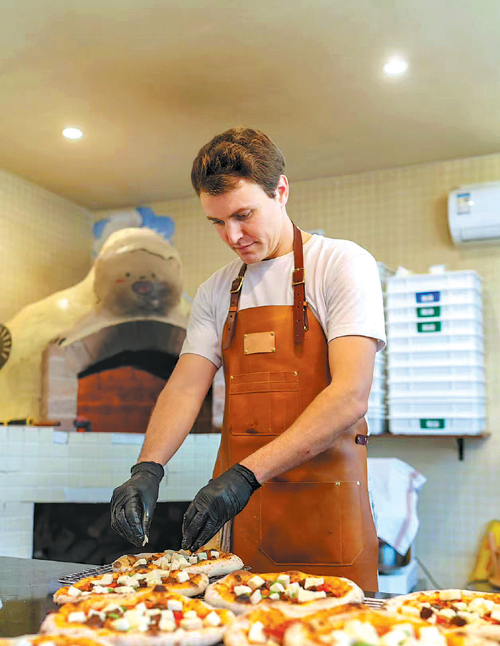

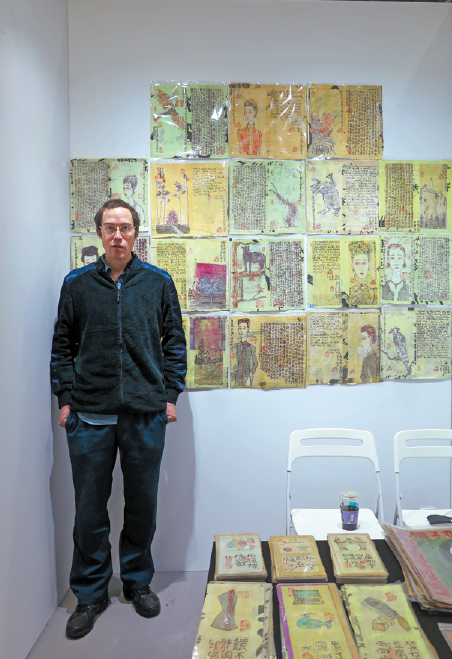
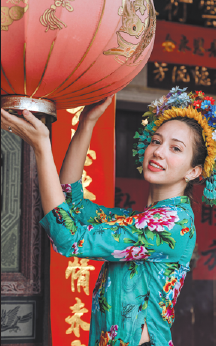
Today's Top News
- Xi addresses Global Leaders' Meeting on Women
- China's foreign trade up 4% in first three quarters
- Xi to attend Global Leaders' Meeting on Women, deliver keynote speech
- China champions vision and action
- Gaza peace summit must fix sights on two-state solution
- Women shine in digital job market



















